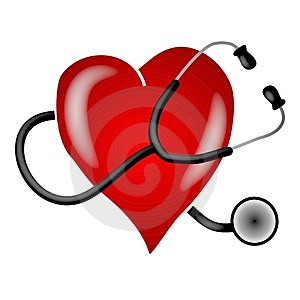February is American Heart Health Month, but did you know that recent research suggests that micronutrient deficiencies could be at the HEART of heart disease? A recent study published in the Journal of the American College of Cardiology (JACC) suggests that a proper balance of micronutrients (vitamins, minerals, EFA’s and accessory nutrients) may be the missing link to improving heart function and achieving a healthier heart.
Here are the facts, over 5 percent of all healthcare expenditures in the United States (estimated to be $38 billion) are related to the treatment of heart failure (HF). However, it seems that no matter what we do, or the positive results realized through available HF treatments, such as drug therapy, defibrillators and exercise, hospitalizations due to heart failure continue to rise – why?
As it turns out, while current research addresses many aspects of heart disease (again, mostly macronutrient based), there have been relatively few studies examining themicronutrient needs of the heart muscle to maintain its health.
Without a doubt, the heart is the hardest working organ in the body. On any given day, the human heart will pump more than 1,900 gallons of blood and because the heart is so active, it requires an enormous amount of energy — in the form of adenosine triphosphate (ATP) — to stay healthy. However, few in the health sciences today are looking at how a deficiency in certain micronutrients may affect the hearts ability to process this energy.
“The heart requires a tremendous amount of ‘fuel,’ or ATP, to pump the volume of blood that circulates throughout the human body on a daily basis,” says Dr. Mihai Gheorghiade of Northwestern University Feinberg School of Medicine and co-author of the recent review on micronutrient deficiencies and heart health in the JACC. “In heart failure patients, the energy requirements are significantly higher due to the increased demand on the heart. At the same time, the heart is less efficient in processing the fuel, possibly because of an insufficient amount of certain micronutrients….In a healthy heart, much of the regeneration takes place while a person is sleeping. The heart consumes the necessary micronutrients when resting,” Dr. Gheorghiade states. “For someone with heart failure, the heart is in a constant state of activity — even when sleeping — and requires more micronutrients than may be available in the body. So micronutrient deficiencies may actually contribute to the burden of disease.”
What Does This Mean?
It means we all need to seriously take a good hard look at the role micronutrients actually play in the prevention and reversal of chronic health conditions and disease. (See Micronutrient Sufficiency Hypothesis of Health Pg. 249 Naked Calories) The scientific community at large including researchers, nutritionists, and medical doctors have been so focused on how macronutrients (carbohydrates, fats, and proteins) effect heart disease (and all other diseases for that matter) that we have almost completely overlooked the micronutrients. Theoretically, creating a state of micronutrient sufficiency for those micronutrients needed by the heart could improve heart function and, possibly, lead to better outcomes for HF patients.
“Until now, we had never really examined the role that micronutrients play in heart health,” says Dr. Gheorghiade. “Although there is nothing conclusive about the study, it certainly suggests that additional research is needed to assess this potential new area of heart failure treatment.” Dr. Gheorghiade recommends that patients and physicians continue to talk about holistic approaches to HF and discuss how micronutrients may be an important factor in HF treatment.
At Calton Nutrition, we believe that micronutrient deficiency is the most widespread and dangerous health condition of the 21st century. We also believe that the potential health benefits of micronutrient sufficiency goes far beyond that of heart heath. Micronutrients are an underexplored therapeutic field of nutrition that desperately deserves our attention. By readingNaked Calories, you can take your first steps towards understanding how micronutrients can affect your health.
It should be noted that current HF treatment guidelines do not recommend micronutrient supplementation. To learn more about micronutrient sufficiency or to learn if you are micronutrient sufficient, go to CaltonNutrition.com and take our free 50-question micronutrient sufficiency profile quiz. While you are giving your heart to someone special this Valentines Day, make sure it is as healthy as possible.
List of beneficial micronutrient for heart health:
Vitamin B1 (Thiamin), Vitamin B2 (Niacin), Vitamin B5 (Pantothenic acid), Vitamin B6, Vitamin B12, Vitamin C, Vitamin D, Vitamin E, Calcium, Magnesium, Potassium, Chromium, Copper, Selenium, Alpha Lipoic Acid, L-Carnitine, Coenzyme Q10, Grape Seed Extract, Quercetin, Omega-3, Omega-6.
To see how your multivitamin stacks up to the ABCs of Optimal Supplementation Click Here











